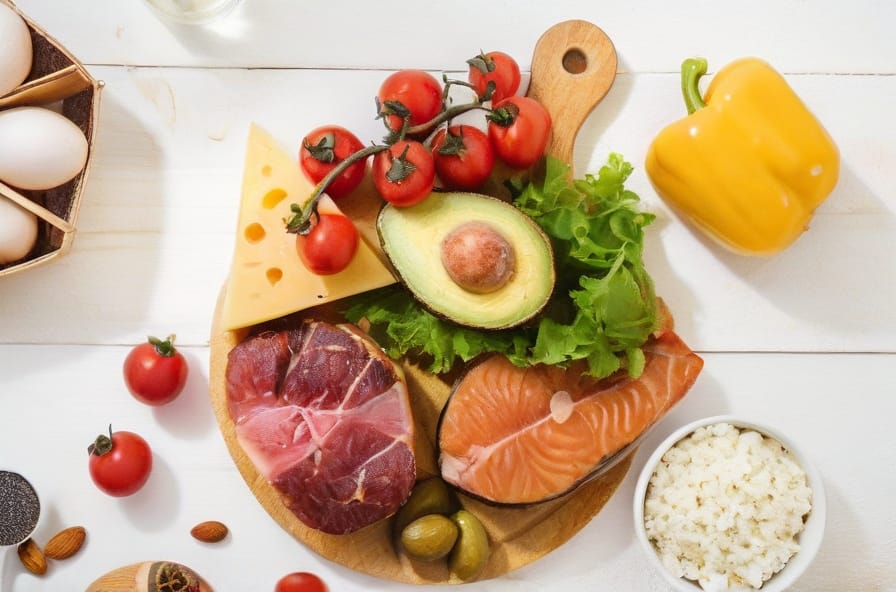Nutrient-dense foods play a crucial role in maintaining a healthy diet and overall well-being. These foods are packed with essential vitamins, minerals, and antioxidants that support optimum health and prevent chronic diseases. In contrast, processed foods that are high in calories but low in nutrients can lead to weight gain, inflammation, and other health issues.

I. What are nutrient-dense foods?
Nutrient-dense foods are those that provide a high amount of essential nutrients per calorie. These foods are typically unprocessed or minimally processed, allowing them to retain their natural nutrients. Examples of nutrient-dense foods include fruits, vegetables, whole grains, lean proteins, and healthy fats.
These foods are rich in vitamins, minerals, antioxidants, and fiber, all of which are essential for maintaining optimal health. By incorporating nutrient-dense foods into your diet, you can ensure that you are getting the necessary nutrients your body needs while also promoting weight management and reducing the risk of chronic diseases.
In the next section, we will delve deeper into the benefits of nutrient-dense foods and their impact on overall health and well-being. Stay tuned to learn more about how these powerhouse foods can transform your diet and boost your overall wellness.
II. The importance of nutrient-dense foods in a healthy diet
Now that we have a basic understanding of what nutrient-dense foods are, let’s explore why they are so important for maintaining a healthy diet.
- Meeting Nutritional Needs: Nutrient-dense foods are packed with essential vitamins and minerals that our bodies need to function properly. By consuming a variety of these foods, we can ensure that we are getting all the necessary nutrients to support our immune system, promote healthy brain function, and maintain strong bones and muscles.
- Weight Management: Including nutrient-dense foods in our diet can help us manage our weight effectively. These foods are typically lower in calories but high in fiber and protein, which helps us feel full and satisfied. This can prevent overeating and support healthy weight loss or maintenance.
- Disease Prevention: Nutrient-dense foods are our allies in the fight against chronic diseases. Research has shown that diets rich in fruits, vegetables, whole grains, and lean proteins can reduce the risk of conditions such as heart disease, diabetes, and certain types of cancer.
By prioritizing nutrient-dense foods in our diet, we can optimize our nutrient intake, maintain a healthy weight, and reduce the risk of chronic diseases. In the following section, we will discuss practical ways to incorporate these foods into our daily meals. So, stay tuned to discover some delicious and nutritious recipes that will make healthy eating a breeze.
III. The benefits of incorporating nutrient-dense foods into your meals
Now that we understand why nutrient-dense foods are important for maintaining a healthy diet, let’s dive deeper into the specific benefits of incorporating these foods into our meals.
First and foremost, including nutrient-dense foods in our meals can provide us with the energy we need to fuel our bodies throughout the day. These foods are rich in complex carbohydrates, which are slowly digested and absorbed, resulting in a steady release of energy. This can help us maintain optimal energy levels and prevent spikes and crashes.
In addition to providing sustained energy, nutrient-dense foods also support our overall well-being. By consuming a variety of colorful fruits and vegetables, for example, we can boost our immune system and protect our bodies from illness and disease.
Furthermore, incorporating nutrient-dense foods into our diet can improve our mental clarity and focus. Foods like fatty fish, nuts, and seeds, which are high in omega-3 fatty acids, have been shown to enhance brain function and support cognitive health.
Lastly, these foods can contribute to the longevity and vitality of our bodies. Research has consistently shown that individuals who consume nutrient-dense diets have a lower risk of developing chronic diseases, such as heart disease, stroke, and type 2 diabetes.
Related: Step-by-Step Guide: Creating Your Ideal Low-Carb Diet Meal Plans
IV. How to identify and choose nutrient-dense foods
When it comes to incorporating nutrient-dense foods into our daily meals, it’s important to know how to identify and choose the right options. Here are some practical tips and strategies to help you make informed decisions:
- Read food labels: Start by checking the nutrition facts label on packaged foods. Look for foods that are low in added sugars, sodium, and unhealthy fats. Opt for ingredients that are recognizable and avoid those with lengthy chemical names.
- Focus on whole foods: Instead of relying heavily on processed and packaged foods, prioritize whole foods. These include fresh fruits, vegetables, lean proteins, whole grains, and healthy fats. Not only are they rich in essential nutrients, but they also tend to be lower in additives and preservatives.
- Go for variety: Aim to have a diverse range of nutrient-dense foods in your diet. Different foods provide different essential nutrients, so incorporating a variety of colorful fruits and vegetables, whole grains, and lean proteins will ensure you get a wide range of vitamins and minerals.
- Consider your personal needs: While nutrient-dense foods are generally beneficial for everyone, it’s important to consider your individual dietary needs and any specific health concerns you may have. Consult with a registered dietitian or healthcare professional for personalized guidance.
By following these strategies, you can make informed choices and ensure that your meals are packed with the essential nutrients your body needs for optimal health. So, get ready to transform your eating habits and embrace the power of nutrient-dense foods in the next section.
V. Tips for incorporating nutrient-dense foods into your diet
Incorporating nutrient-dense foods into your diet doesn’t have to be a daunting task. With a little planning and preparation, you can easily upgrade the nutritional value of your meals. Here are some practical tips to help you get started:
- Meal planning: Take some time each week to plan your meals and snacks. This will help you ensure that you have a variety of nutrient-dense foods on hand and reduce the temptation to reach for less healthy options. Consider batch cooking and prepping ingredients in advance to save time during busy weekdays.
- Smoothies and salads: Smoothies and salads are excellent ways to pack in a wide range of nutrients. Load up your smoothies with fruits, leafy greens, and a source of protein like Greek yogurt or nut butter. For salads, experiment with different combinations of colorful vegetables, lean proteins, and whole grains.
- Healthy snacking: Instead of reaching for processed snacks, opt for nutrient-dense alternatives. Keep a stash of nuts, seeds, and dried fruits for a quick and easy snack. You can also prepare homemade energy balls or veggie sticks with hummus for a satisfying and nutritious pick-me-up.
- Mindful eating: Pay attention to your body’s hunger and fullness cues. Mindful eating can help you make better food choices, enjoy your meals more, and prevent overeating. Take the time to savor the flavors, textures, and colors of nutrient-dense foods.
Remember, incorporating nutrient-dense foods is a journey, not an all-or-nothing approach. Focus on progress, not perfection, and enjoy the process of nourishing your body with wholesome and delicious options.
VI. The impact of nutrient-dense foods on overall health and well-being
Now that we’ve discussed practical tips for incorporating nutrient-dense foods into your diet, let’s dive into the incredible impact these foods can have on your overall health and well-being. Nutrient-dense foods provide you with a wide range of essential vitamins, minerals, and antioxidants that support various bodily functions.
When you consume a diet rich in nutrient-dense foods, you give your body the fuel it needs to function optimally. These foods can boost your immune system, reduce the risk of chronic diseases such as heart disease and diabetes, improve digestion and gut health, enhance mental clarity and focus, support healthy weight management, and promote glowing skin and strong hair.
Furthermore, nutrient-dense foods provide sustained energy throughout the day, keeping you feeling full and satisfied. They help stabilize blood sugar levels, minimizing cravings and reducing the likelihood of overeating processed, empty-calorie foods.
By incorporating nutrient-dense foods into your diet, you are investing in your long-term health and well-being. Remember, consistency is key. Gradually make small changes to your eating habits, and over time, you’ll begin to notice the positive impact on your overall vitality and quality of life.
VII. Conclusion: Prioritizing nutrient-dense foods for a healthier future
In this blog series, we have delved into the significance of nutrient-dense foods in a healthy diet and explored practical tips for incorporating them into your meals. By now, you understand the incredible impact that nutrient-dense foods can have on your overall health and well-being.
It’s essential to prioritize these foods as they provide vital nutrients that support various bodily functions. From boosting your immune system to reducing the risk of chronic diseases, improving digestion to promoting healthy weight management, the benefits are endless. Not to mention, these foods provide sustained energy, keeping you satiated throughout the day.
Remember, consistency is key. Start with small changes to your eating habits and gradually increase the incorporation of nutrient-dense foods into your meals. Over time, you’ll notice the positive impact on your vitality and quality of life.
Empower yourself with the knowledge of nutrient-dense foods, experiment with delicious and nutritious recipes, and embark on a journey to a healthier future. Stay tuned for more information and inspiration to support your nutrient-dense food journey.



